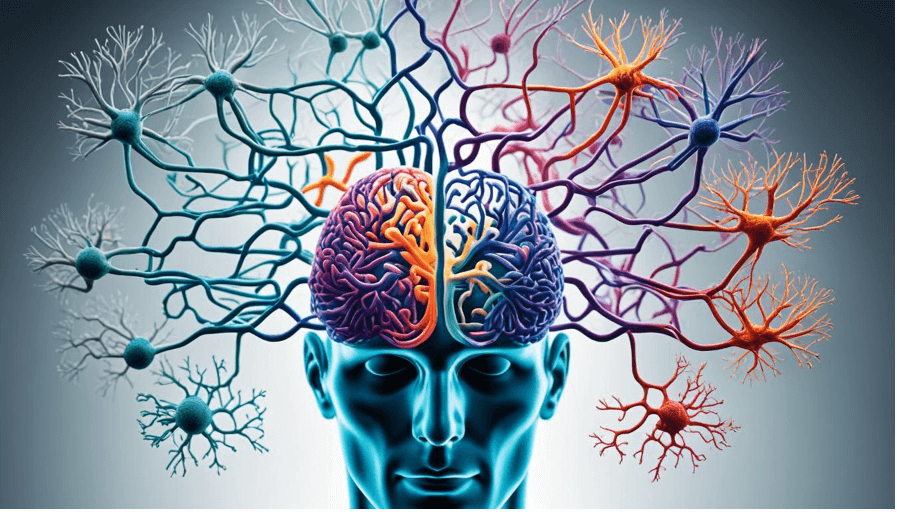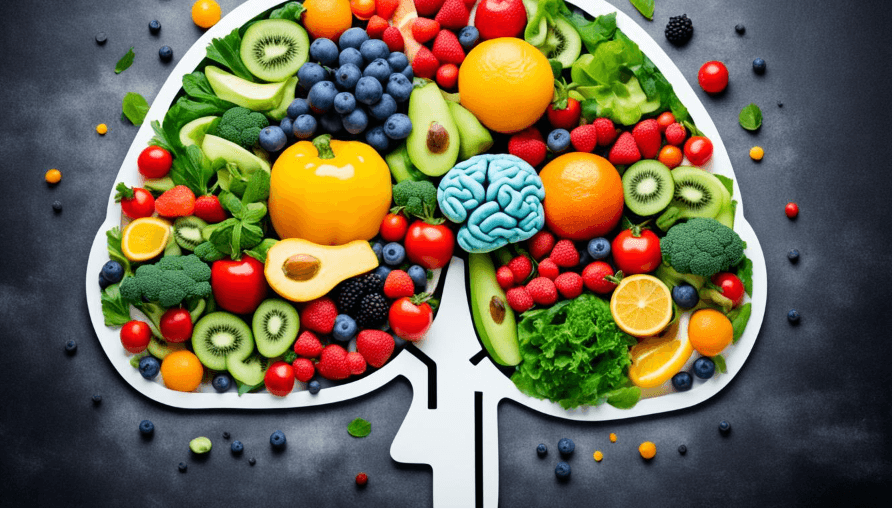Dr. Andrew Huberman is a well-known professor at Stanford University. He uses neuroscience to boost productivity. On his popular Huberman Lab podcast, he shares tips to improve your focus and brain power.
He uses behavior, nutrition, and supplements to help your brain work better and enhance brain health. For example, waking up early helps you feel more awake and focused. Getting sunlight early in the day can make you happier and more energetic.
Drinking lemon water or apple cider vinegar in the morning is good for your stomach. Huberman believes in meditating for 10 minutes every day. It can lower stress and make your mind clearer.
Exercise can also help you be more productive. A cold shower can get your blood flowing and reduce soreness. Writing down your thoughts and goals every morning makes your mind clear. It helps you stay on target.
It’s important to sleep well every night and have a calm bedtime routine. Avoid coffee and alcohol before bed. Make sure to see a doctor if you can’t sleep well. Adding fun activities in the morning can keep you from feeling too stressed. Huberman’s tips are based on brain science. They are a full plan to help you focus better and succeed more.
Introduction to Andrew Huberman’s Productivity Philosophy

Understanding Dr. Andrew Huberman’s productivity tips can greatly improve our minds and overall happiness. This section introduces him and explains why focus and doing well are key.
Who Is Andrew Huberman?
Andrew Huberman teaches neurobiology and eye science at Stanford. His work on brain repair, changing brain activities, and mental state improvement is groundbreaking. As a well-known scientist, he shows how brain science improves daily productivity
Why Focus and Performance Matter
Doing well and staying focused matters in work, school, personal life, and creativity. Huberman shows how to better our cognitive and physical health through life tweaks and proven science strategies. He believes in making our brains work better to do well in all parts of life. Following his advice can really boost how we think and get things done.
The Science Behind Focus and Performance
Neurochemicals play a big part in improving focus and performance. Research shows that neurotransmitters like epinephrine, dopamine, and acetylcholine boost how we think and work.
Role of Epinephrine and Dopamine
Dr. Andrew Huberman says epinephrine and dopamine are key for being alert and focused. Epinephrine, also known as adrenaline, gets us ready for big tasks. It matches our brain’s natural 90-minute focus cycles.
Dopamine helps keep us driven for longer tasks. Working when dopamine is high can be way more productive. But too much stimulation can lower dopamine. A 30-day break from high-stimulus activities can reset dopamine levels, making us more focused. Deliberate cold exposure can boost norepinephrine levels for increased alertness and enhance emotional resilience.
How Acetylcholine Enhances Focus

Acetylcholine is essential for sharp focus. It targets neurons in the brain, improving our attention. Meditation and outdoor walks raise acetylcholine, which boosts our mental abilities.
Taking supplements like Choline (500mg-1g per day) and Alpha-GPC (300mg) also increases acetylcholine. This enhances focus and memory recall. Huberman’s work shows how crucial neurochemistry is for a productive day.
Morning Routine for Peak Performance
Wake Up Early and Get Exposure to Natural Light
Waking up early is essential for peak performance, as it allows you to start your day with a sense of control and purpose. Exposure to natural light in the morning helps regulate your circadian rhythms, which can improve your overall physical and mental health. Aim to wake up at least 30 minutes before sunrise to get some natural light exposure. This can be as simple as opening your curtains or taking a short walk outside. By doing so, you’ll be able to improve your cognitive function, boost your mood, and set yourself up for a productive day.
Hydrate and Meditate for Mental Clarity
Hydration is crucial for both physical and mental health, and drinking water first thing in the morning can help kickstart your metabolism and improve your focus. Aim to drink at least 8-10 glasses of water throughout the day, and consider adding a slice of lemon or a splash of apple cider vinegar to your morning water for an extra boost. Meditation is also an excellent way to improve mental clarity and reduce stress. Take 10-15 minutes each morning to sit quietly, focus on your breath, and clear your mind. This can help improve your cognitive function, reduce anxiety, and set a positive tone for the day.
Exercise and Stretch for Physical Health
Exercise is essential for physical health, and incorporating it into your morning routine can help improve your cardiovascular health, boost your energy levels, and set you up for a productive day. Consider starting with some light stretching or yoga to loosen up your muscles and improve your flexibility. From there, you can move on to more intense exercise, such as high-intensity interval training (HIIT) or weightlifting. Remember to listen to your body and start slowly, especially if you’re new to exercise. The goal is to improve your physical health and set yourself up for a healthy, happy day.
Workspace Optimization for Maximum Productivity

Dr. Andrew Huberman, known for his neurobiology and ophthalmology work, highlights workspace design’s effect on our brains. He suggests changes to enhance focus, creativity, and ability to switch between tasks. This helps us reach our full potential at work.
Workspace design focuses on vision, lighting, noise, and music preferences. Bright lights early in the day boost productivity by releasing brain chemicals. Specifically, dopamine and norepinephrine get released. This is because lights and natural sunlight activate special cells in our eyes, making us more alert.
If you don’t have enough sunlight, bright artificial lights can help. Using desk lamps, overhead lighting, or ring lights can make your workspace better. Changing from sitting to standing, and walking short distances regularly, also helps a lot.
The “Cathedral Effect” suggests that high ceilings boost creativity, while low ceilings help with focus on details. By adjusting your environment, you can work better depending on the task. Also, screens should be just above eye level to help you stay alert and focused.
Noise around us affects our work too. Sounds like white, pink, or brown noise can make us more productive for short periods. Binaural beats, played through headphones, may improve thinking and lower stress. The timing of tasks is important too, as our productivity varies throughout the day.
Moving around, like walking or biking, and seeing things move by us helps lower our anxiety. These actions help make a workspace that boosts brain function. This leads to better focus, creativity, and work performance.
The Power of Nutrition: What to Eat and When
Andrew Huberman believes in eating right to stay sharp. He says eating certain foods can help you focus better. It’s all about when you eat and what you eat to keep your mind clear. Additionally, consuming substances like caffeine and alcohol can disrupt sleep, so it’s important to time their intake properly, such as avoiding caffeine several hours before bedtime, to promote better sleep and overall health.
The Impact of Fasting and Feeding

Huberman is a big fan of eating within set hours. He believes it supports metabolic health, which in turn helps you focus better. The idea is to eat in an 8 to 10-hour window each day. This way, your brain gets the right amount of fuel it needs.
This eating method helps your brain work better. It makes sure your brain gets the energy it needs when it needs it. By eating this way, you can stay sharp and focused all day.
Foods to Enhance Cognitive Function and Performance
Huberman also talks about eating foods that make your brain work better. Foods high in tyrosine, like avocados, nuts, and fish, are great. They help make dopamine, which your brain needs to focus.
Research supports eating things like greens, berries, and foods high in omega-3. These foods keep your brain healthy and sharp, enhancing brain health and cognitive function. By choosing these smart foods, you can boost your brain power.
Andrew Huberman’s Fitness Routine to Boost Focus
Exercise plays a big role in Andrew Huberman’s day. His fitness plan has cardio, resistance training, and HIIT. These activities speed up the metabolism, make joints stronger, and boost focus-related hormones. He works out regularly to keep his mind sharp.
Daily Exercise Breakdown
Huberman has a detailed plan for his weekly workouts. He works different muscles on specific days. Sundays are for endurance, and Mondays focus on legs. Each workout lasts between 50 to 75 minutes. This keeps things safe yet effective.
His muscle-building method starts with 3-4 sets of heavier lifts. He then switches to lighter weights. This boosts strength and benefits the brain over time.
Foundational Fitness Protocol
The Role of High Intensity Interval Training and Cardio
HIIT is key in Huberman’s routine. It increases focus by releasing endorphins and dopamine and can significantly improve cardiovascular health. He also does short cardio workouts on Thursdays to keep his heart healthy.
He suggests certain supplements before exercising. These include Alpha-GPC and L-Tyrosine. After workouts, he recommends Creatine and Whey Protein. These aid in performance and recovery.
Huberman keeps a strict fitness schedule. It greatly improves physical and mental health.
Supplementation for Enhanced Developers
Andrew Huberman talks a lot about using supplements to get better at focusing and doing better overall. You can find his advice on many places like YouTube, Apple Podcasts, or Spotify. This makes it easy for lots of people to see. He says adding things like creatine, Alpha-GPC, and tyrosine to your day can help your brain. This helps you think and feel better.
He explains how each supplement helps your brain work better. This can make you feel more awake, happier, and more ready to go. For example, 5g of creatine each day can make you do better when you exercise. Taking 300mg of Alpha-GPC before working out can make you stronger. And 500mg of tyrosine before exercise can make your workout better.
Huberman says it’s key to pick supplements that fit just right for you. This means thinking about what your body needs, your daily life, and your money. This way, you get the most out of it and can keep it up. He also talks about adding vitamins, minerals, enzymes, adaptogens, and good bacteria to your day.
He gives detailed tips on how to use these brain supplements every day. This includes how much to take, where to get them, when to take them, how to cycle them, and how to use different types at once. This careful planning is important. It helps you use each supplement the best way to help your brain and keep your focus sharp.
Leveraging Stress for Improved Concentration
Understanding stress can help us focus better and perform well. Dr. Andrew Huberman talks about using short-term stress and cold therapy. These methods help us think clearly.
Short-term Stress and Focus
Short-term stress can actually make us more focused. Dr. Huberman says that stress makes us release epinephrine. This chemical helps us pay better attention to problems. It helps us handle stress better.
Stress makes our bodies release dopamine too. Dopamine helps us stay motivated and happy. It changes when we experience new things. This keeps us focused and motivated.
The Impact of Cold Exposure
Cold showers can enhance circulation and reduce inflammation, providing significant health benefits by boosting epinephrine and dopamine production. Dr. Huberman says cold therapy can make us think better. It keeps our dopamine at the right levels for motivation and happiness.
Thinking about cold exposure also raises dopamine. This makes us more alert and ready for tasks. Cold therapy uses the stress it causes to improve our focus and brain power.
The Role of Sound and Music in Focus

Dr. Andrew Huberman values meditation and focus exercises for their benefits to mental and physical health. They help keep your mind present. This is key for good focus over time. They teach your brain to stay sharp and handle distractions.
Guided Meditation Practices
Meditating for focus for 13 minutes a day can change your brain. It helps with attention. Pairing this with exercise boosts your brainpower. Research shows it betters attention, memory, and feelings. Yoga nidra also improves sleep in those with insomnia.
Focus Exercises
Looking at something still for a bit helps your prefrontal cortex. This is important for focus. Taking breaks helps keep your focus and avoid burnout. By practicing these exercises, you can do better work and think clearer. Adding Cal Newport’s methods can help reach deep work.
Make these practices a regular part of your day. Start your morning with sunlight for 5-10 minutes. Wait a bit before your coffee. Work out for an hour three times a week. This helps you stay focused all day.
Additional Tips for Peak Performance
Limit Screen Time to Reduce Distractions
In today’s digital age, it’s easy to get sucked into the vortex of social media, email, and other screen-based distractions. However, excessive screen time can disrupt your sleep, reduce your productivity, and negatively impact your mental health. To avoid this, try limiting your screen time to specific periods of the day, such as during your lunch break or after dinner. Consider implementing a “no screens” policy in the hour leading up to bedtime, and instead opt for a relaxing activity, such as reading or meditation. By doing so, you’ll be able to improve your sleep quality, reduce distractions, and set yourself up for a more productive day.
By incorporating these tips into your daily routine, you’ll be able to improve your physical and mental health, boost your energy levels, and set yourself up for peak performance. Remember to start slowly, listen to your body, and be consistent – with time and practice, you’ll be able to achieve your goals and live a healthier, happier life.
Conclusion
Dr. Andrew Huberman’s productivity routine sets up a clear path for better focus and performance. He wakes up at 6:30 a.m. and follows a strict daily plan. This includes getting morning sunlight, doing deep work, and specific exercises.
One of his tips is to wait 90 to 120 minutes after waking up to drink coffee. This helps stay alert. He also does intense workouts like powerlifting and practices non-sleep deep rest (NSDR) to make up for lost sleep. These habits work with our body’s natural clock to keep us sharp all day.
Dr. Huberman also talks about making the environment better for work. He suggests wearing blue light-blocking glasses before bed and taking short meditation breaks. Using the Pomodoro Technique and socializing during lunch helps too. Following these steps can improve our focus and well-being. Dr. Huberman’s routine offers great advice for anyone wanting to get better at focusing and being productive.
FAQ
Who Is Andrew Huberman?
Dr. Andrew Huberman teaches neurobiology and ophthalmology at Stanford. He researches how our brains can grow and change. His work looks at focus and how we perform.
Why Focus and Performance Matter?
Being focused helps us succeed in many areas of life. Scientific methods can make our brains work better. This improves how we do things.
What Role Do Epinephrine and Dopamine Play in Focus?
Epinephrine keeps us alert. Dopamine helps us keep our focus. Together, they make our focus and performance better.
How Does Acetylcholine Enhance Focus?
Acetylcholine makes us pay better attention. It does this by making certain brain cells more active. This can make us smarter and more productive.
How Can Workspace Optimization Improve Productivity?
Making your workspace better can help your brain. It can make you more focused and creative. Knowing how our surroundings affect our brain helps us create better workspaces.
What Is the Impact of Fasting and Feeding on Cognitive Performance?
Not eating for a while can make us focus better. Eating certain foods gives us glucose and tyrosine. This helps us think clearer and stay alert.
What Foods Enhance Cognitive Performance?
Eating foods like eggs, dairy, and nuts is good. They have tyrosine which boosts dopamine. Eating whole grains and fruits helps our brain cells work well.
What Does Andrew Huberman’s Fitness Routine Include?
His exercise plan has cardio, lifting, and quick workouts. These improve his metabolism, keep his joints healthy, and help his brain focus better.
What Supplements Does Andrew Huberman Recommend for Focus?
Dr. Huberman likes creatine, alpha-GPC, and tyrosine for the brain. These supplements make us feel more energized and motivated. They help our brain work better.
How Can Short-term Stress Improve Concentration?
A little stress can make us sharper. Things like cold showers can boost helpful chemicals in our brain. This makes us concentrate better.
What Is the Role of Sound and Music in Focus?
Certain sounds help our brain focus. They work on the part of the brain that pays attention. Playing these sounds can improve how we think.
How Does Sleep Affect Productivity?
Good sleep is key for our brains, and maintaining a consistent sleep routine can significantly improve focus, memory, and staying calm. Sleeping well is important for doing well each day.
What Meditation and Focus Techniques Does Huberman Recommend?
Huberman suggests guided meditation and focus drills. These help our brain stay on task. They also keep our minds from wandering off.

More Posts
AI-Powered Productivity Planning Tools for Enhanced Efficiency
Navigate the world of productivity tools with our productivity planning tools and powerful productivity software. Understand their benefits, identify the best ones, and effortlessly elevate your work efficiency. In today’s market of project...
Why Can't I Focus Top 07 Reasons Why?
People frequently complain about their inability to focus at work, school, or even daily activities. They occasionally even struggle to keep up with the to-do list. How often have you checked your phone...
Get Things Done: 5 Stages of Mastering Workflow
You might have read it a lot of time why an effective time management system is useful and also the basic ideas behind what a successful one would be. Namely, a good time...
8 Ways to Deal with Writing Procrastination
Many writers struggle with putting off their work. This problem hits even the most disciplined writers. It comes from things like wanting to be perfect, feeling guilty, and being anxious. There are many...